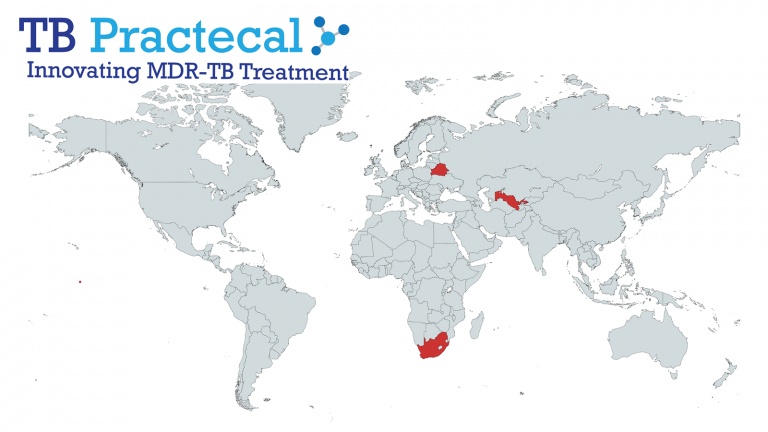MDR-TB drug trial success
24 March 2021
The TB-PRACTECAL clinical trial for treating multidrug-resistant tuberculosis (MDR-TB) has shown the treatment to be effective

The trial is sponsored by Médecins Sans Frontières (MSF), and UCL is one of the partners. It is a phase II/III clinical trial, tested a six-month regimen of bedaquiline, pretomanid, linezolid and moxifloxacin, against the locally accepted standard of care.
Earlier this month, the trial’s independent data safety and monitoring board recommended that randomisation of patients into TB-PRACTECAL be stopped, as more data was extremely unlikely to change the results of the trial. As a result, MSF has closed enrolment to new patients last week.
“This will be the first ever multi-country, randomised, controlled clinical trial to report on the safety and efficacy of a six-month, all oral regimen for drug-resistant TB,” said Professor David Moore from LSHTM and a member of the Trial Steering Committee.
465,000 people developed rifampicin-resistant TB in 2019 and 182,000 died. Treatment is long, only cures three out of every five patients, and despite changes in WHO guidance, often still includes painful injections and drugs which cause toxic side effects including deafness.
Since the first patient was enrolled onto the TB-PRACTECAL trial in 2017, new treatments for MDR-TB have become available. But lengthy regimens that patients struggle to complete are still the reality in many of the countries in which MSF works. The WHO’s current guidelines recommend treatment lasting nine to 20 months for patients with MDR-TB.
MSF is now preparing a dataset to share with the World Health Organization (WHO) as soon as possible, and full results will be submitted to a peer reviewed journal in the coming months. MSF believes these findings will have the potential to change clinical practice.
More information can be found on the MSF website: Press release; TB-PRACTECAL page
 Close
Close

